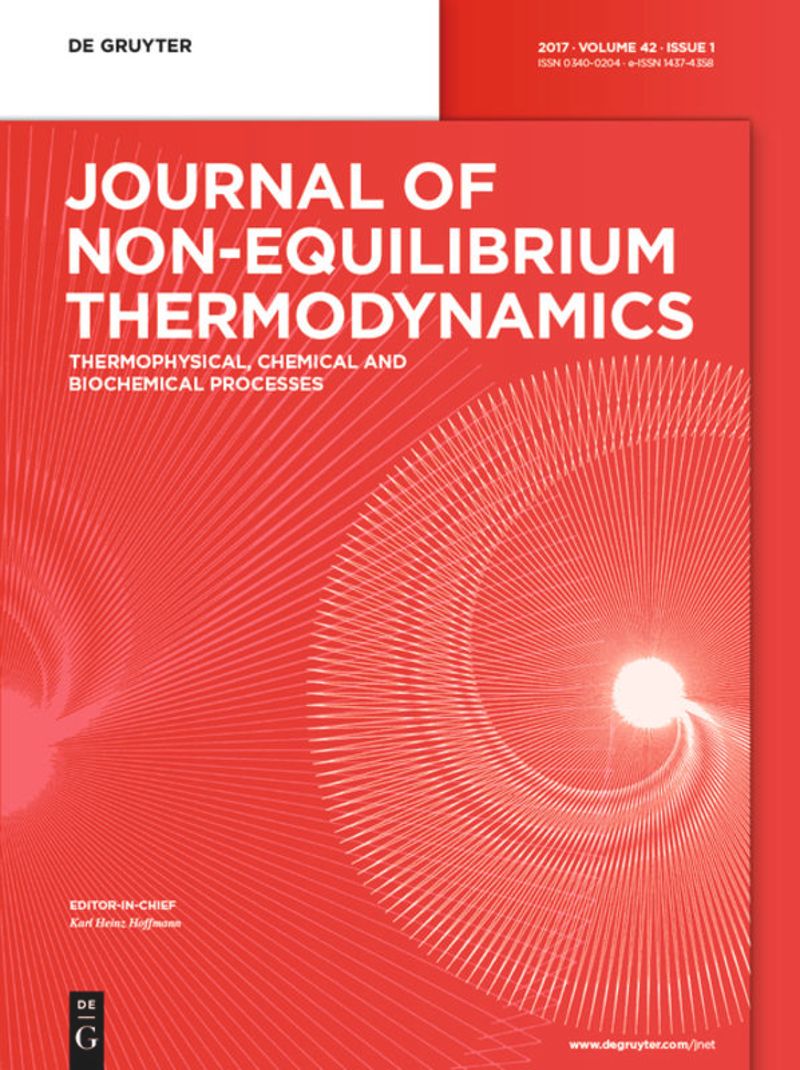A general relativistic kinetic theory approach to linear transport in generic hydrodynamic frame
IF 4.2
3区 工程技术
Q1 MECHANICS
引用次数: 0
Abstract
In this study, we investigate the linear transport of neutral system within the framework of relativistic kinetic theory. Under the relaxation time approximation, we obtain an iterative solution to the relativistic Boltzmann equation in generic stationary spacetime. This solution provides a scheme to study non-equilibrium system order by order. Our calculations are performed in generic hydrodynamic frame, and the results can be reduced to a specific hydrodynamic frame by imposing constraints. As a specific example, we analytically calculated the covariant expressions of the particle flow and the energy momentum tensor up to the first order in relaxation time. Finally and most importantly, we present all 14 kinetic coefficients for a neutral system, which are verified to satisfy the Onsager reciprocal relation in a generic hydrodynamic frame and guarantee a non-negative entropy production in the frame where the first order conservation laws are restored.一般流体动力系中线性输运的广义相对论动力学方法
在本研究中,我们在相对论运动理论的框架下研究了中性系的线性输运。在松弛时间近似下,我们得到了广义静止时空中相对论玻尔兹曼方程的迭代解。该解提供了一种逐级研究非平衡系统的方案。我们的计算是在一般的水动力框架下进行的,通过施加约束,结果可以简化为特定的水动力框架。作为一个具体的例子,我们解析地计算了粒子流和能量动量张量在松弛时间上的一阶协变表达式。最后,最重要的是,我们给出了一个中性系统的所有14个动力学系数,并证明了它们在一般流体动力系中满足Onsager互反关系,并保证了在恢复一阶守恒律的系中产生非负熵。
本文章由计算机程序翻译,如有差异,请以英文原文为准。
求助全文
约1分钟内获得全文
求助全文
来源期刊
CiteScore
9.10
自引率
18.20%
发文量
31
审稿时长
1 months
期刊介绍:
The Journal of Non-Equilibrium Thermodynamics serves as an international publication organ for new ideas, insights and results on non-equilibrium phenomena in science, engineering and related natural systems. The central aim of the journal is to provide a bridge between science and engineering and to promote scientific exchange on a) newly observed non-equilibrium phenomena, b) analytic or numeric modeling for their interpretation, c) vanguard methods to describe non-equilibrium phenomena.
Contributions should – among others – present novel approaches to analyzing, modeling and optimizing processes of engineering relevance such as transport processes of mass, momentum and energy, separation of fluid phases, reproduction of living cells, or energy conversion. The journal is particularly interested in contributions which add to the basic understanding of non-equilibrium phenomena in science and engineering, with systems of interest ranging from the macro- to the nano-level.
The Journal of Non-Equilibrium Thermodynamics has recently expanded its scope to place new emphasis on theoretical and experimental investigations of non-equilibrium phenomena in thermophysical, chemical, biochemical and abstract model systems of engineering relevance. We are therefore pleased to invite submissions which present newly observed non-equilibrium phenomena, analytic or fuzzy models for their interpretation, or new methods for their description.

 求助内容:
求助内容: 应助结果提醒方式:
应助结果提醒方式:


